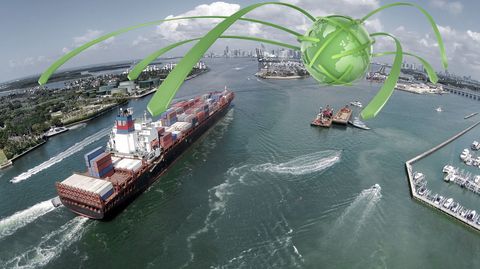In the face of mounting protectionism in many parts of the world, the European Union has been steadfast in its stated commitment to the cause of globalization and liberalized trade, and continues to push ahead with new initiatives to support that end.
Recent months have seen the EU agree or implement new trade arrangements with Canada and Japan, and this momentum is now set to continue with a new range of measures designed to strengthen the European trade agenda that were announced during the European Commission State of the Union address earlier this month.
As outlined by European Commission president Jean-Claude Juncker, the new package of trade and investment proposals are designed to deliver a more "balanced and progressive" trade policy, creating new opportunities for EU businesses and their partners overseas to improve their commercial links.
Background
At present, more than 30 million EU jobs are supported by European exports to the rest of the world. With 90 per cent of future global growth expected to take place outside European borders, the EU is keen to carry on creating stronger trade links to allow member states to capitalize on these new opportunities.
As such, the European Commission proposed a new trade and investment strategy entitled "Trade for All: Towards a more responsible trade and investment policy" back in 2015, with key goals including improving European businesses' access to overseas markets, fostering shared values with other nations and developing more transparent regulations.
This was to be achieved through additional progress on the Transatlantic Trade and Investment Partnership with the US, as well as the creation of new deals in Asia-Pacific and Africa, plus the modernization of existing free trade agreements (FTAs) with Mexico and Chile.
Key measures
The new measures announced this month are set to build on this progress by recommending that the European Council open negotiations for trade agreements with Australia and New Zealand, and to establish a multilateral court for the settlement of investment disputes to aid global governance.
A new advisory group on EU trade agreements is also set to be established, allowing the European Commission to engage with civil society and gather different perspectives on trade deals from a wide range of stakeholders, including trade unions, employers' organizations, consumer groups and other non-governmental organizations.
Additionally, the EU has agreed to make all recommendations for negotiating directives for trade agreements accessible to the general public as a means of improving the transparency of these processes, while efforts will also be made to set up a Europe-wide framework to screen foreign direct investment, ensuring such resources can remain a major source of growth in the EU while protecting the bloc's essential interests in terms of security and public order.
Goals
The aim of these initiatives will be to continue the EU's recent efforts to open up its markets and improve international trade links, creating new opportunities for smaller businesses, additional consumer choice and a raft of additional jobs. Mr Juncker estimated that every additional €1 billion in exports generated by these steps could support as many as 14,000 extra jobs in Europe.
However, the new policies will also make sure that any moves towards greater liberalization will be conducted in a fair and transparent manner, balancing the interests of states and investors and providing the necessary democratic legitimacy to ensure these efforts are widely accepted.
In a broader sense, meanwhile, the EU expects that its fresh commitment to free trade will allow the bloc to firmly position itself as a global leader in trade governance, at a time when nations such as the US are showing signs of a retreat into more protectionist ways of thinking.
Trade commissioner Cecilia Malmstrom said: "The world needs leaders in trade. The EU continues to champion free and fair trade, at the forefront of a group of like-minded countries. Today's package of proposals shows this leadership in action; it also demonstrates our determination to develop EU trade policy in a way that's as open and inclusive as possible.
"In the coming weeks, I will be working closely with the European Parliament and EU governments, through the Council of the EU, to move these proposals forward as quickly as possible."






